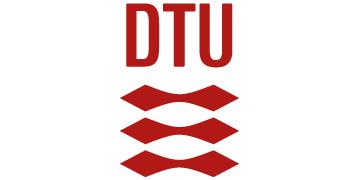Associate Professor in Microstructural MRI Acquisition (part-time) – DTU Health Tech
We offer a part-time position (20%) as Associate Professor in microstructural MRI acquisition, embedded in the MR Section at DTU Health Tech.
We offer a part-time position (20%) as Associate Professor in microstructural MRI acquisition, embedded in the MR Section at DTU Health Tech.
The position is initially time limited to four years. It is our ambition to create technology and infrastructure for MRI technology for healthy human volunteers, work with large animal models and on translation to clinical studies.
Research and teaching should be conducted in collaboration with universities, hospitals (in particular the Danish Research Centre for Magnetic Resonance, Hvidovre Hospital) and healthcare companies both nationally and internationally. In the MR section we have a focus on brain research to which we expect you to align your research.
Responsibilities and qualifications
You must have a strong background and experience within the area of basic research in microstructural MRI and MR spectroscopy. You will develop techniques for in vivo imaging together with local colleagues and external collaborators. Specifically, you should develop lines of research related to developing new acquisition technologies, theoretical analysis frameworks and translate proof-of-concept work to feasible applications in human and animal research.
MRI is a complex method that requires interdisciplinary skills, and you will be part of the MR acquisition team and strive for collaborations across the whole MR section:
- Study and experimentally describe the possible applications of microstructural MRI at the 3T MRI lab at DTU as well as the clinical, preclinical, and ultra-high field MRI facilities at DRCMR.
- Develop acquisition protocols and hardware to optimize imaging capabilities.
- Integrate experimental data with supporting techniques, e.g. structural and functional MRI, brain stimulation techniques, metabolic imaging techniques, histological validation, or other supporting diagnostic methods.
- Support the application of new techniques in life science with a particular focus on the brain.
You are expected to contribute to developing the research portfolio and funding within the above area. Idea generation, fund raising, research impact and innovation are key performance indicators for the position.
Dissemination to the public and exchange of knowledge with society, including participation in the public debate is important. Guidance and supervision of postdocs and PhD students is expected. Contributing to the development of a good work atmosphere and a thriving environment is essential.
You must be responsible for the teaching of courses. DTU employs two working languages: Danish and English. You are expected to be fluent in at least one of these languages, and in time are expected to master both.
As formal qualification you must hold a PhD degree (or equivalent) as well as academic qualifications equivalent to those obtained by holding an assistant professorship and documented didactic/pedagogic training.
You will be assessed against the responsibilities and qualifications stated above and the following general criteria:
- Experience and quality of teaching
- Research experience
- Research vision and potential
- International impact and experience
- Societal impact
- Innovativeness, including commercialization and collaboration with industry.
- Leadership, collaboration, and interdisciplinary skills
- Communication skills
Salary and terms of employment
The appointment will be based on the collective agreement with the Danish Confederation of Professional Associations. The allowance will be agreed upon with the relevant union.
The position in offered as a 20% employment (part-time) for a four-year period.
You can read more about career paths at DTU here.
Further information
Further information may be obtained from Head of Section of Magnetic Resonance, Professor Axel Thielscher, axthi@dtu.dk, tel.: +45 4525 5313.
You can read more about the Department at healthtech.dtu.dk.
If you are applying from abroad, you may find useful information on working in Denmark and at DTU at DTU – Moving to Denmark.
Application procedure
Please submit your online application no later than 16 February 2024 (23:59 Danish time). Applications must be submitted as one PDF file containing all materials to be given consideration. To apply, please open the link "Apply now", fill out the online application form, and attach all your materials in English in one PDF file. The file must include:
- Application (cover letter)
- Vision for teaching and research
- CV including employment history, list of publications indicating scientific highlights, H-index and ORCID (see http://orcid.org/)
- Teaching portfolio including documentation of teaching experience
- Academic Diplomas (MSc/PhD)
You can learn more about the recruitment process here.
Applications received after the deadline will not be considered.
All interested candidates irrespective of age, gender, disability, race, religion, or ethnic background are encouraged to apply.
DTU Health Tech engages in research, education, and innovation base on technical and natural science for the healthcare sector. The Healthcare sector is a globally expanding market with demands for the most advanced technological solutions. DTU Health Tech creates the foundation for companies to develop new and innovative services and products which benefit people and create value for society. DTU Health Tech’s expertise spans from imaging and biosensor techniques, across digital health and biological modelling, to biopharma technologies. The department has a scientific staff of about 210 persons, 140 PhD students and a technical/administrative support staff of about 160 persons, of which a large majority contributes to our research infrastructure and related commercial activities.
Technology for people
DTU develops technology for people. With our international elite research and study programmes, we are helping to create a better world and to solve the global challenges formulated in the UN’s 17 Sustainable Development Goals. Hans Christian Ørsted founded DTU in 1829 with a clear mission to develop and create value using science and engineering to benefit society. That mission lives on today. DTU has 13,500 students and 6,000 employees. We work in an international atmosphere and have an inclusive, evolving, and informal working environment. DTU has campuses in all parts of Denmark and in Greenland, and we collaborate with the best universities around the world.

